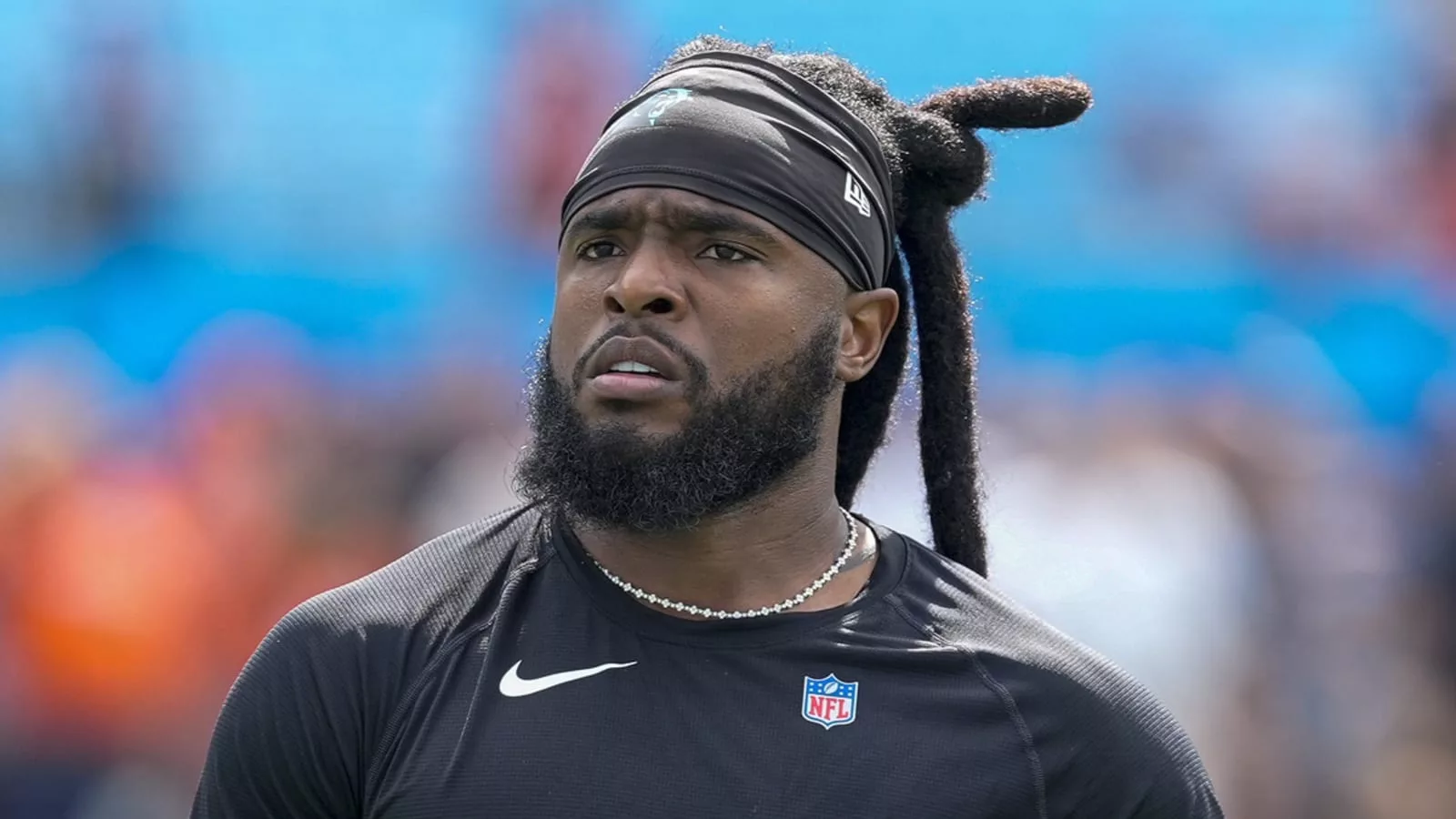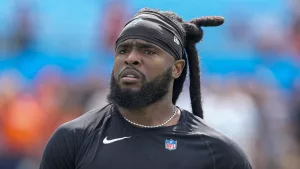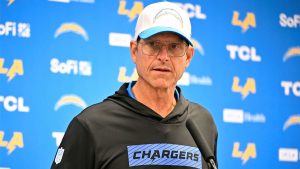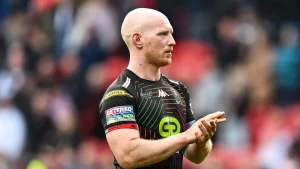
BREAKING NEWS:The Steelers has finally reveals why they Won’t Trade Back for the wide receiver Diontae Johnson….

The Pittsburgh Steelers wide receiver Diontae Johnson.
The Pittsburgh Steelers have made headlines recently by confirming they will not trade wide receiver Diontae Johnson, and the reasoning behind this decision sheds light on their broader strategy and vision for the team.
First and foremost, Diontae Johnson is viewed as a cornerstone of the Steelers’ offensive strategy. His exceptional route-running ability, combined with his quickness and agility, makes him a valuable asset in an increasingly competitive league. Johnson has consistently proven himself as a reliable target, capable of making crucial catches in high-pressure situations. The Steelers recognize that maintaining a strong receiving corps is vital, especially as they work to develop their young quarterback and establish a more potent offense.
Furthermore, the team is focused on building chemistry and continuity. Trading away a player of Johnson’s caliber would disrupt the offensive synergy that has been developing. Quarterbacks thrive when they have reliable weapons to lean on, and with Johnson already familiar with the system and the playbook, his presence is invaluable. The Steelers are in a phase of transition, and maintaining their current roster stability is essential for fostering growth among younger players and ensuring that the offense clicks as a unit.
Additionally, the Steelers are committed to maximizing Johnson’s potential. After a challenging previous season marred by injuries, Johnson showed flashes of his talent when healthy. The front office believes that with the right coaching and support, he can return to being one of the league’s top receivers. Rather than trading him for potential short-term gains, the Steelers are betting on his ability to bounce back and contribute significantly to their offensive success.
Financial considerations also play a significant role in the decision to retain Johnson. As a high-performing receiver, his value in the market is considerable, but the Steelers recognize that trading him could result in a loss that outweighs any potential benefits. The salary cap implications of moving a player of his caliber could hinder their flexibility in future signings and roster management. Keeping Johnson ensures that they retain a key player without the risks associated with seeking compensation through trade.
Moreover, the Steelers are likely considering their long-term vision. They have a rich history of developing talent and nurturing players into stars. By holding onto Johnson, the organization can focus on building around him, potentially drafting or acquiring complementary pieces to enhance the offense. This strategy aligns with their philosophy of cultivating homegrown talent and avoiding the pitfalls of short-term fixes that trading often entails.
In conclusion, the Steelers’ decision not to trade Diontae Johnson stems from a blend of strategic foresight, financial prudence, and a commitment to maintaining offensive stability. By retaining Johnson, they are not only acknowledging his importance to the team but also setting the stage for a more cohesive and dynamic offensive unit as they move forward. This decision highlights the Steelers’ dedication to building a competitive team that can contend in the long run, rather than making impulsive moves that might offer immediate gratification but compromise future success.







